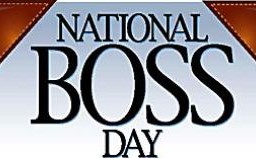It took much courage to undertake the professional transition that Tony Vetter successfully completed recently.
Tony had worked more than 10 years in the telecommunications sector, having served as Senior Product Manager (Ciena), Director of Technical Marketing (Roshnee Corporation) and in advisor and managerial roles at Nortel.
Tony came to see me because he felt it was time to leave high tech. He needed a career that better matched his core values and where he could contribute meaningfully to making the world a better place.
He had a lot of energy but no real clarity regarding careers that matched his ambition for “values-rich” work. And he was skeptical about replacing his considerable income earned in the hi-tech sector for fulfilling but less financially rewarding work in the nonprofit sector.
“I realized that if I wanted to follow my heart I would eventually have to leave my career in high tech,” said Tony. “I felt that if I continued in high tech I would only be contributing to a development process driven by the pursuit of profit and technological advancement for its own sake. I found myself questioning whether the rapidly evolving trends I was seeing in the development of our global communications infrastructure would actually lead to a net benefit for the global community.”
Tony was particularly interested in how he could use his proven high tech skills to foster sustainable development through Information & Communication Technologies (ICT). However, he needed to be convinced that there were real opportunities for his skill set in a values-rich workplace. We completed a JobJoy Report to identify and define all his Key Success Factors.
I guided him through a systematic and deliberate process designed to successfully transition him from high-tech into International Development within four years. This involved the full range of transition services: assessment, targeting and marketing. We spent several years positioning him for ideal opportunities: rewriting his resume; identifying and meeting with prospective employers; and completing his Master’s Degree in International Affairs from the Norman Paterson School of International Affairs (NPSIA) in April, 2008.
His career transition was jump-started by a desire to demonstrate to others his proficiency in new skills, techniques and knowledge related to international development. He organizes around a drive for proficiency and is motivated by acquiring and using that proficiency in an accurate and timely manner.
Tony is motivated to comprehensively understand a subject and searches for underlying principles, logic or philosophical background. He has a strong desire to master fundamental skills and techniques of craft. Tony is not an academic working only with ideas: he strives to implement ideas in practical, day-to-day ways to make a difference in the lives of others.
“I have always instinctively felt that following my heart would lead me to making my best possible contribution to the world,” says Tony. “George helped me to identify the kind of work I most valued through the telling of my life stories for which I felt a sense of consistent satisfaction or events I particularly enjoyed.”
I provided Tony with contacts in his field of interest which led to face-to-face dialogue with people who had already made transitions from purely technical environments to international development. He also prospected with CIDA, IDRC, Industry Canada and other agencies with international development mandates. We used an Approach Letter strategy to help secure meetings with key people. This gave him a vocabulary to speak to others about himself in an accurate and forthcoming way independent of the jargon spoken in the high-tech industry.
Through the Norman Patterson Institute, Tony was placed on a cooperative placing with the International Institute for Sustainable Development (IISD), a Canadian-based not-for-profit organization located in more than 30 countries. IISD engages decision-makers in government, business, NGOs and other sectors in the development and implementation of policies that benefit the global economy, global environment and promote social well-being. The placement met Tony’s criteria of “values-rich” work and in July, 2007, Tony joined IISD on a permanent basis as Project Officer, Knowledge Communications. He has since moved on as an expert in Information and Communication Technology (ICT) for Sustainable Development.
About the same time, one of Tony’s colleagues crossed paths with the CEO of the Digital Opportunity Trust, and she subsequently met with Tony again to discuss international development. There was no job opportunities at the time with DOT but Tony asked her to keep him in mind if things should change.
“The most powerful aspect of George’s coaching for me was his process for opening doors to potential new career opportunities by making contact and interviewing people doing the kind of work I was interested in,” Tony said. “Post transition, I have ended up working with or having contact with many of the people I interviewed as part of my career transition. George has helped me successfully establish a solid network of contacts for growing my new career direction.
He is charged with researching and analyzing the efficacy of ICT for development initiatives and governmental ICT policy in developing countries in context of how they contribute to achieving sustainable economic and social development while respecting the limitations of the environment. Using the findings of research and analysis, he formulates recommendations for policy coherence with sustainable development strategies, Poverty Reduction Strategy Papers, Millennium Development Goals and other development frameworks and agendas.
Despite taking almost a 50% cut in pay in carrying out this transition, Tony has satisfied his need for values-rich work. Long term, he aspires to work on projects aimed at achieving sustainable development objectives using appropriate technologies in emerging markets, and to apply his ideas on development in practical, day-to-day ways to make a difference in the lives of others.
He will get the chance to do this very shortly. Remember the CEO of the Digital Opportunity Trust he met several times during the past five years? The DOT has experienced rapid growth, and late last year they decided they needed to expand their core executive team.
“Apparently she had been bringing my name up every few months, particularly when things got busy. So they gave me a call and asked if I would apply. I did, and they quickly had me interview with each member of the executive team. I was offered a package within 24 hours of my final interview that literally left me speechless.“
Tony deserves a lot of credit for the risks he took to have work that was meaningful for him. Although we desire certainty and safety, a career transition requires some tolerance for risk. Tony invested in what matters most to him. He connected with others who shared his values and had the power to hire him. He established and maintained rapport with the CEO of a targeted organization even though no job was readily available.
In the meantime, he continued building credibility and experience in his chosen field. When that NGO grew and the CEO needed somebody, she offered the opportunity to Tony, a person she knew professionally as competent, capable,and qualifed (and the rest of her team agreed). Tony’s short term sacrifices resulted in a return to his previous salary level in a field that harmonizes with his values and priorities.
Today, Tony is the Senior Director, Global Operations at Digital Opportunity Trust (http://dotrust.org/), with 8 national programs in Africa, operations in 3 middle eastern counties, and expanding operations to focus on Southern and Eastern Europe and the South Caucasus region, as well as operating in the USA, Mexico, and China. He is looking forward to taking his job joy around the world!
~ with Harry Gallon











